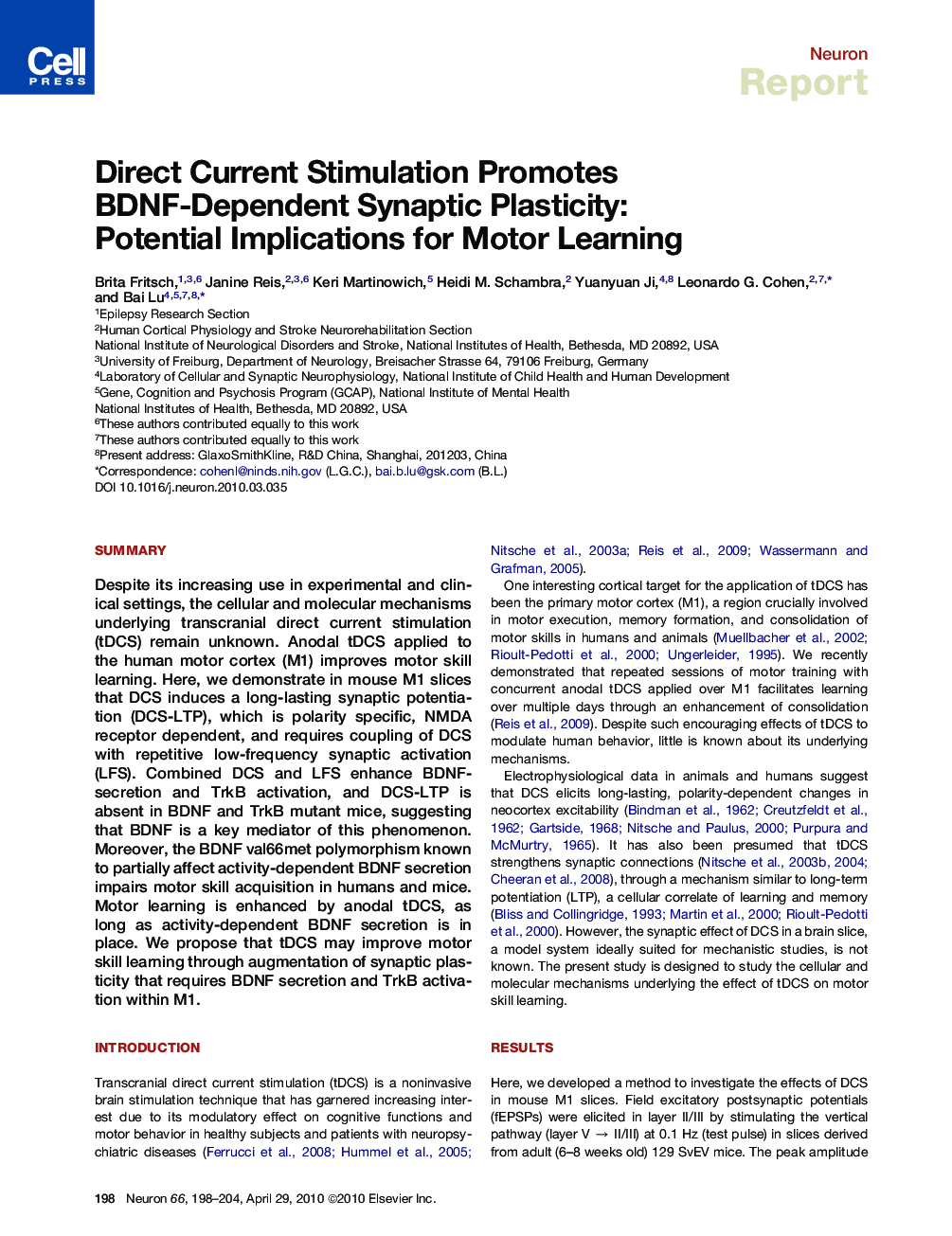| کد مقاله | کد نشریه | سال انتشار | مقاله انگلیسی | نسخه تمام متن |
|---|---|---|---|---|
| 4322006 | 1291674 | 2010 | 7 صفحه PDF | دانلود رایگان |

SummaryDespite its increasing use in experimental and clinical settings, the cellular and molecular mechanisms underlying transcranial direct current stimulation (tDCS) remain unknown. Anodal tDCS applied to the human motor cortex (M1) improves motor skill learning. Here, we demonstrate in mouse M1 slices that DCS induces a long-lasting synaptic potentiation (DCS-LTP), which is polarity specific, NMDA receptor dependent, and requires coupling of DCS with repetitive low-frequency synaptic activation (LFS). Combined DCS and LFS enhance BDNF-secretion and TrkB activation, and DCS-LTP is absent in BDNF and TrkB mutant mice, suggesting that BDNF is a key mediator of this phenomenon. Moreover, the BDNF val66met polymorphism known to partially affect activity-dependent BDNF secretion impairs motor skill acquisition in humans and mice. Motor learning is enhanced by anodal tDCS, as long as activity-dependent BDNF secretion is in place. We propose that tDCS may improve motor skill learning through augmentation of synaptic plasticity that requires BDNF secretion and TrkB activation within M1.
► Direct current stimulation combined with repeated synaptic activation induces LTP in M1
► DCS-LTP requires activity-dependent BDNF secretion and TrkB activation
► Reduced activity-dependent BDNF secretion impairs motor skill learning
► tDCS can promote motor learning when activity-dependent BDNF secretion is in place
Journal: - Volume 66, Issue 2, 29 April 2010, Pages 198–204